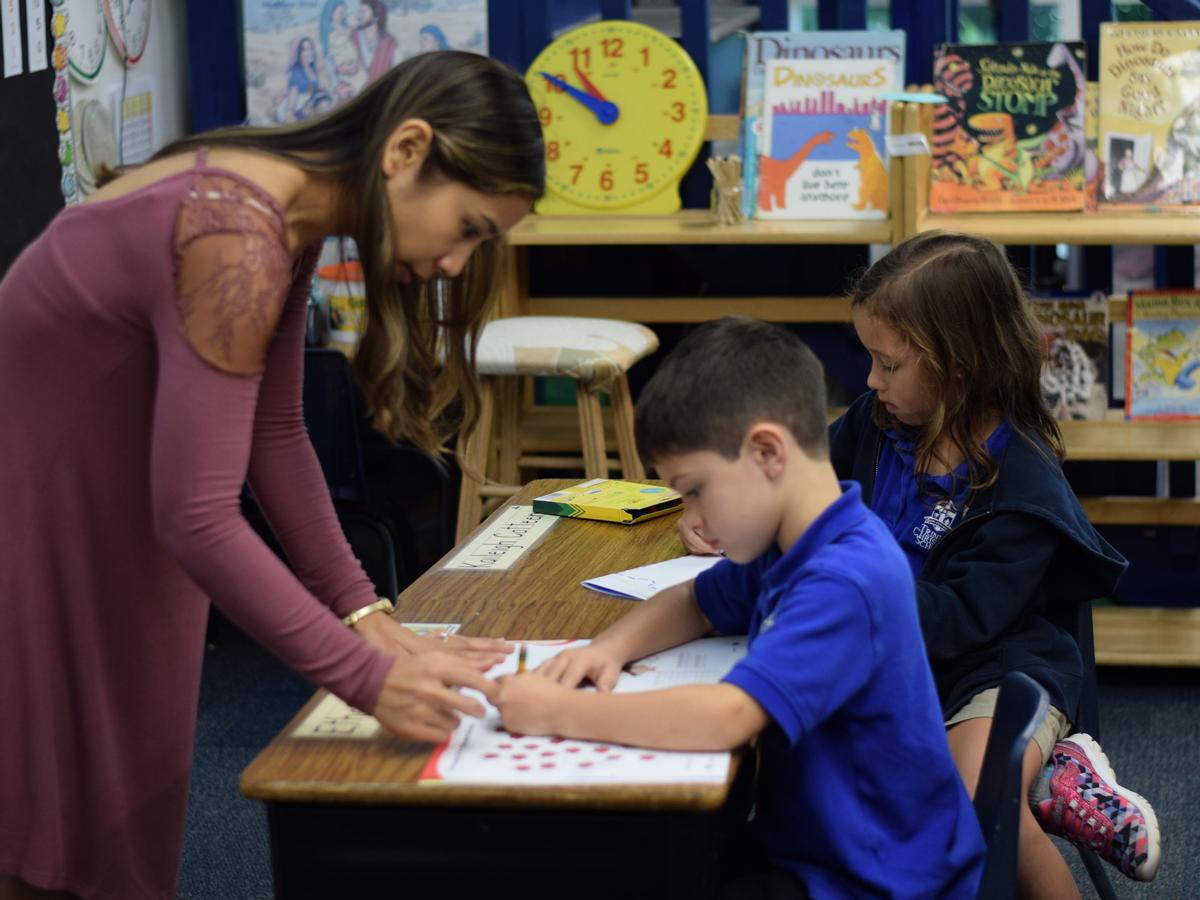Finding the Difference Between Classical Christian Education and the IB Program: Part 2

Part 2: On Learning & Love
Written by Mark Brians, 7th & 10th Humanities Teacher
In an earlier piece on the TCS 'Engaging Minds' blog, I discussed the significant differences between the Classical Christian Tradition and the International Baccalaureate Program. In that article I identified three core concepts which form our Classical Christian pedagogy. They are as follows: That humans are primarily affective beings, driven by loves and formed by competing visions of the good life; That “excellence in education” (academic, extracurricular, and moral), at its core, is about the cultivation of deep virtue engendered by rightly ordered loves (or, ordo amoris, as Augustine puts it); and that this cultivation of human excellence must be rooted in the Gospel of Jesus Christ, and draw upon the richness of the human past.
In what follows I address myself to the first of those three concepts I listed above; namely the affective nature of the human person. It should be noted, however, that while each of these concepts carries a kind of uniqueness, they remain deeply interwoven. Much like the Persons of the Trinity, it may be helpful to think of them as distinct-but-not-separate, as mutually sustaining, or (to use a fancy theological phrase) as perichoretic.
What Do We Mean by Affective?
It has been said, and perhaps falsely attributed to Antoine de Saint-Exupery, that if you want to build a boat, you ought not to spend your time lecturing on the importance of maritime traffic, debating tariff and port regulations, nor drumming-up people to cut down wood. That, rather, your time would be best spent instilling in them an incurable yearning for the vastness of the sea. For teaching in them a burning desire for seafaring would do far more to shape their activity and production —would do more to accomplish the goal— than countless hours spent otherwise.
There is no secret here. Countless anecdotes could be given, from our disparate experiences on the playground, of parenting, from our witness of political rallies, or having given board room presentations, all in defense of this truth. Humans are affective, driven primarily by longings and desires for a certain vision of the “good life.”
By no means do we suggest that humans are only affective. Humans perform a host of things that have a hand in shaping and forming us —we think, we reason, we labor, we produce, we play, we celebrate, we communicate, we dream, we joke, we debate, etc. None of these things are being called into question as things that shape human life. What is being suggested, however, is that back behind all of these human functions, on a pre-rational level, is a heart that was shaped by God in His own Image to love and enjoy Him forever.
The Fall of our race in the garden did not alter the fact that we were designed to love, and for the sake of Love Himself, and that we long to experience love. Rather, the Fall bent our loving; so that we neither know what to love nor how to love properly.
Classical Christian education concerns itself foundationally with the tuning of human loves and passions towards a vision of human flourishing marked chiefly by a deep and superabundant peace individually and socially.
Affectivity and Educational Philosophy
Every pedagogy is grounded in a central question: what does it mean to be human? An institution’s answer to that one question will inform every aspect of instruction, from things as central as benchmarks and school culture to things as seemingly auxiliary as room décor.
Our classical pedagogy is therefore rooted in the understanding that humans, while capable of many kinds of activity, are foundationally affective creatures. Kevin Clark and Ravi Jain thus suggest that “before learning can begin there must be an education in love.”
The classical Christian school is not merely a place for children to get “tooled” for the job market (although that is a good thing that happens along the way), it is a network (of parents, and faculty, and administrators, and students, and coaches, etc.) who work in the formation of rightly ordered loves.
Looking for more? Read our Grand Tour blog and Athletics blog!

